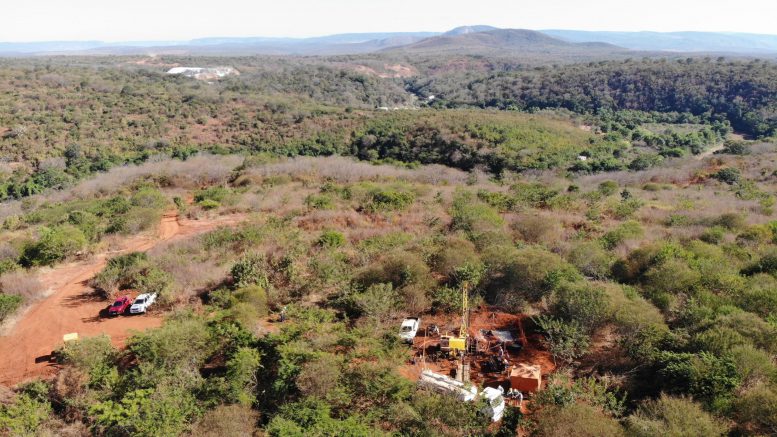Lithium Ionic (TSXV: LTH; US-OTC: LTHCF) reported on Monday assays as high as 1.25% lithium oxide (Li2O) over 49.8 metres from drilling at its near-feasibility stage Bandeira project in eastern Brazil.
That result included 1.46% Li2O over 27 metres from 55 metres depth, in drillhole ITDD-23-213. It’s one of 23 holes drilled at Bandeira, located in northern Minas Gerais state, Lithium Ionic said in a news release.
Other highlights were 1.46% Li2O over 40 metres, including 2.02% Li2O over 6 metres, 1.83% Li2O over 7 metres and 3.38% Li2O over 5 metres, intersected from around 147 metres downhole in hole ITDD-24-259.
“We continue to unlock further value at Bandeira with these latest high-grade results,” Lithium Ionic CEO Blake Hylands said in the release.
“As we approach the completion of our feasibility study for Bandeira, these results highlight the potential for further expansion of the project. We continue to prioritize the advancement of Bandeira to production and look forward to delivering significant milestones towards this goal in the near-term.”
Some of the results weren’t included in the resource expansion released on April 12 for Bandeira and Salinas, about 100 km north, he said. The company anticipates releasing a feasibility study for Bandeira in May, with construction permits due after June. A preliminary economic assessment (PEA) for Salinas is expected to be released in the second half of the year.
Resource update
The Toronto-based company’s resource update for Bandeira, northeast of Araçuaí, outlined measured and indicated resources of 23.7 million tonnes. They graded 1.34% Li2O for 783,000 tonnes of lithium carbonate and 18.3 million inferred tonnes at 1.37% Li2O for 618,400 tonnes of lithium carbonate.
The update raised the company’s total resource to 32.5 million measured and indicated tonnes grading 1.3% Li2O, as well as 27.6 million inferred tonnes, a 26% increase to 60.1 million tonnes for its global resource, it said.
Earlier in April, Lithium Ionic announced an initial resource for Salinas. It comprises 5.9 million measured and indicated tonnes at 1.09% Li2O and 8.9 million inferred tonnes at 0.97% Li2O.
Other notable assays from Monday’s drill results include 1.86% Li2O over 24.1 metres from 180 metres depth in ITDD-24-256; and 2.13% Li2O over 20.4 metres, including 2.62% Li2O over 10.4 metres and 3.78% Li2O over 3.3 metres, from 175 metres downhole in hole ITDD-24-260.
A PEA was completed for Bandeira last October, which outlined an underground mine project with a post-tax net present value (at an 8% discount) of US$1.6 billion and an internal rate of return of 121%, at capital costs of US$233 million. The PEA gave Bandeira average life-of-mine output of 217,700 tonnes per year of high-quality spodumene at 5.5% Li2O over a 20-year life.
Bandeira sits on a 1.7-sq.-km property, in the prospective, hard rock lithium district known as the “Lithium Valley.”
Lithium Ionic shares were up 2.7% to 76¢ apiece, valuing the company at $105 million. Its shares have traded in a 52-week range of 62¢ to $3.05.


Be the first to comment on "Lithium Ionic’s high-grade assays follow resource increase at Bandeira in Brazil"